10 Amazon Rainforest Deforestation Facts to Know About
Over 40% of Global Tropical Deforestation Occurs in Brazil
Globally, we lose about 5 million hectares of forest a year due to land clearing for agriculture and livestock farming, logging activities to produce materials like paper, palm oil and soy production, as well as gold mining. The Amazon rainforest covers land across nine countries including Colombia and Peru, but around 60% of it lies within Brazil. Despite efforts to protect forest land, legal deforestation is still rampant, and about a third of global tropical deforestation occurs in Brazil’s Amazon forest, amounting to 1.5 million hectares each year.
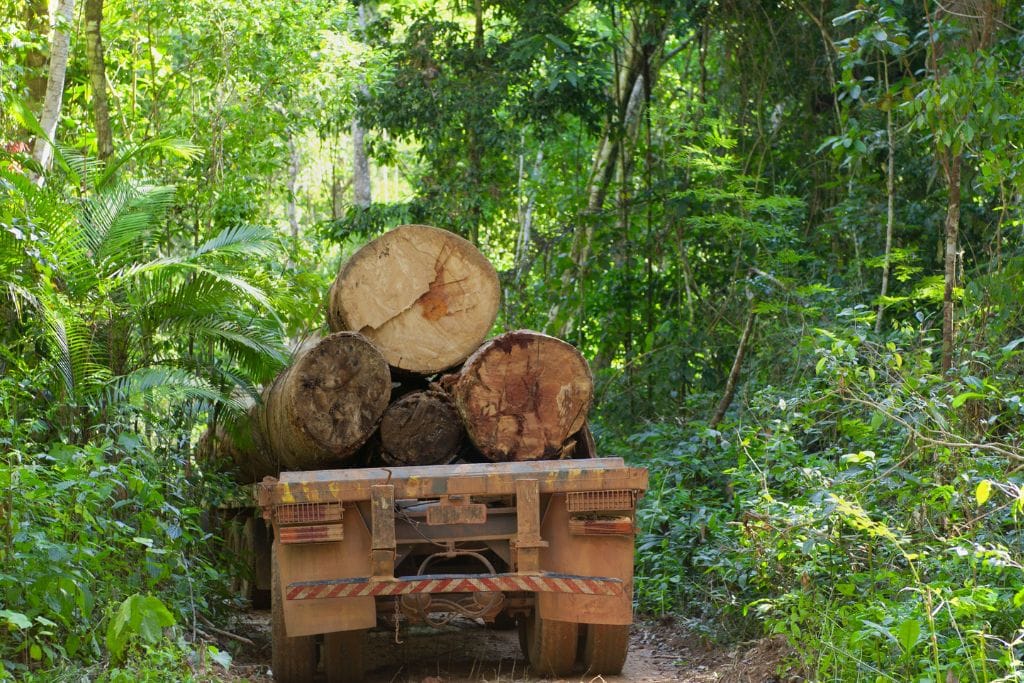
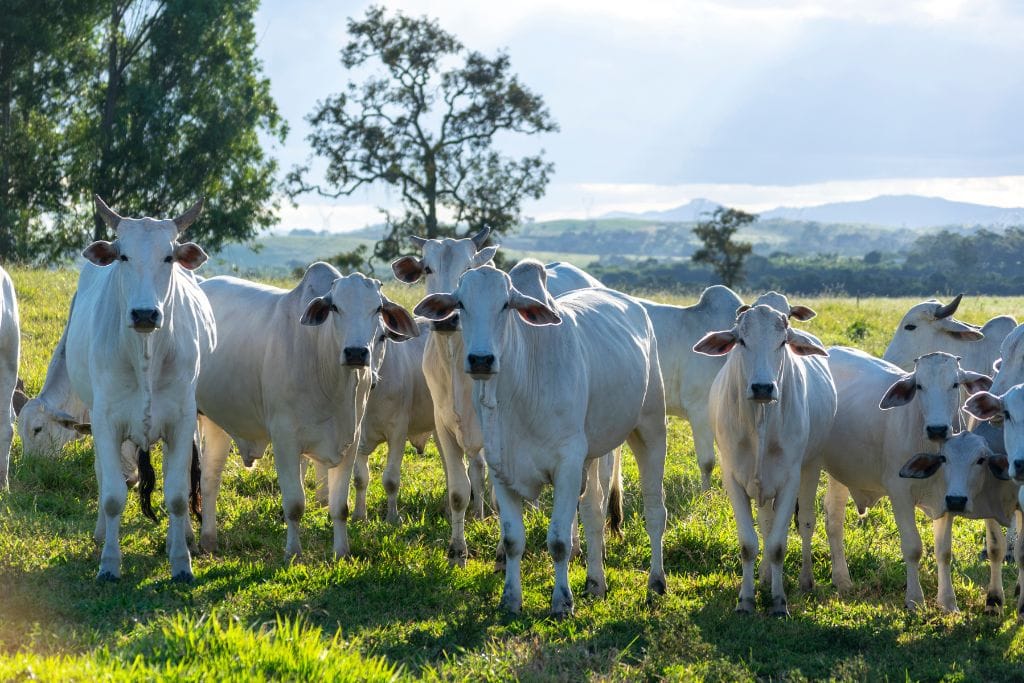
Beef Production is the Biggest Driver for Deforestation in the Amazon
Globally, we lose about 5 million hectares of forest a year due to land clearing for agriculture and livestock farming, logging activities to produce materials like paper, palm oil and soy production, as well as gold mining. The Amazon rainforest covers land across nine countries including Colombia and Peru, but around 60% of it lies within Brazil. Despite efforts to protect forest land, legal deforestation is still rampant, and about a third of global tropical deforestation occurs in Brazil’s Amazon forest, amounting to 1.5 million hectares each year.
Gold Mining in the Amazon is On the Rise
Um dos fatos mais preocupantes sobre o desmatamento da floresta amazônica é que os projetos de mineração de ouro aumentaram em toda a região amazônica nos últimos anos, especialmente ao longo do Escudo das Guianas, à medida que o mercado global de ouro cresce constantemente. Os projetos de mineração ocorrem nas profundezas das florestas e degradam habitats cruciais, apresentando riscos significativos de contaminação da água por vazamentos tóxicos e erosão do solo. A atividade garimpeira costuma se espalhar para áreas protegidas, como Terras Indígenas e Unidades de Conservação. Estudos também descobriram que a mineração de ouro apresenta impactos prejudiciais à saúde da floresta e limita sua regeneração, onde se descobriu que as árvores da floresta têm uma capacidade menor de acumular carbono e custam cerca de 2 milhões de toneladas de carbono florestal.
Blue Macaw is One of the Many
Species Under Threat
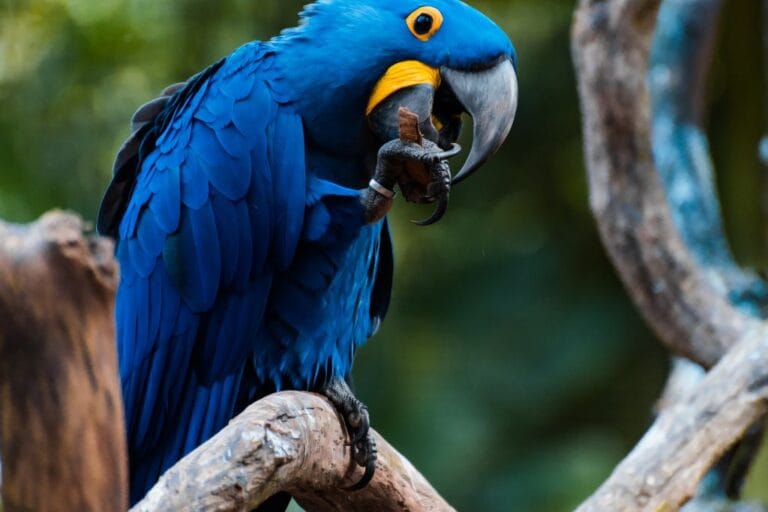
The Hyacinth Macaw, also known as the Blue Macaw, is native to the Amazon. But the species’ natural habitats and resources grow smaller and smaller every day with illegal logging, agricultural land clearing and urban development. Today, it exists only in small areas including central Pará, the epicentre of deforestation, which saw 203,460 hectares deforested in 2019. While the strikingly blue parrot is currently classified as vulnerable by the International Union for Conservation of Nature (IUCN), they are at the precipice of becoming endangered.
Likewise, Milton’s Titi, an incredibly rare primate that was only first discovered in 2011, and can found only in a small area of lowland rainforest between the Roosevelt and Aripuanã River in the Amazon. As these monkeys cannot swim well or cross mountainous terrain, the live exclusively on treetops and can only remain in this specific area. Due to rising deforestation, the region lost 3,130 hectares of land in 2019, which could prove fatal for the survival of the species.

Soybean Production is a Growing Threat
Soybean production is responsible for about 12% of global deforestation, which is mainly used as animal feed and to support the massive demand of meat production. Despite the rising popularity of soy milk, tofu and other soybean products, only 19% of soybean production goes into human food products. Brazil currently accounts for around one-third of global soybean production, where in 2018, the country produced 118 million tonnes of soy to support its massive meat production.
Deforestation Has Turned the Amazon Rainforest into a Carbon Source
The Amazon rainforest is a natural carbon sink and provides one of the greatest services for planet: absorbing and storing carbon dioxide from the atmosphere. Its ability to do so is crucial in our fight against the climate crisis. Yet as a result of persistent deforestation and a sharp increase of wildfires, the Amazon has been converted into a source of carbon, and is found to emit a greater amount of carbon dioxide than it is absorbing. Forest fires produce three times more carbon than the forests can absorb, thus creating a negative loop. The study also revealed that the forest emitted about a billion tonnes of carbon dioxide a year, equal to the annual emissions released in Japan, the world’s fifth-biggest polluter.
More Than 100 Countries including Brazil Pledged to End Deforestation by 2030
At the COP26 UN climate summit, more than 100 countries committed to halting and reversing deforestation by 2030. And much to the surprise of many, Brazil – despite President Bolsonaro being notably absent at the conference – joined in the pledge. However, many environmentalists are skeptical about Bolsonaro’s commitment in light of his track record and disregard for environmental governance. Though there have been recent efforts to increase forest protection, including hiring 700 more environmental enforcement agents and the allocation of greater funding to the country’s environmental protection bodies, Brazil’s commitment to end deforestation remains to be seen.
Despite slower forest destruction rates throughout 2021, the vital goal set out by the Deforestation Pledge to end and reverse global deforestation by the end of the decade will be missed without urgent action, according to the recently published Forest Declaration Assessment.
Deforestation Rates Rose Sharply Under Bolsonaro Presidency
Um dos fatos mais surpreendentes sobre o desmatamento da floresta amazônica é que, desde que o presidente do Brasil, Jair Bolsonaro, assumiu o cargo em janeiro de 2019, as taxas de desmatamento dispararam para níveis recordes. De acordo com dados do governo brasileiro e do Imazon, uma ONG que rastreia de forma independente a destruição da floresta, o desmatamento é nitidamente maior sob o governo Bolsonaro do que em qualquer outro momento durante as duas presidências anteriores do Brasil.
O ex-militar de direita não tem escrúpulos em desmatar e defende abertamente a mineração e extração de madeira em territórios indígenas. Apesar de se manifestar contra o “desmatamento ilegal”, o governo Bolsonaro vem reduzindo os orçamentos para aplicação da lei, perdoando multas por desmatamento ilegal e revogando as leis que restringem o desmatamento. Em resposta à sua atitude imprudente sobre o desmatamento, várias queixas foram apresentadas contra Bolsonaro no Tribunal Penal Internacional, acusando-o de crimes contra a humanidade por seu ataque à Amazônia, minando os direitos indígenas e incitando incursões e violência por meio de pedidos de mineração e terras desenvolvimento.
A recente vitória do ex-presidente nas eleições presidenciais de 2022 no Brasil marca uma virada nas questões ambientais e desperta otimismo na luta contra as mudanças climáticas e no futuro da Amazônia.
Indigenous Communities are Key to Protecting the Rainforest
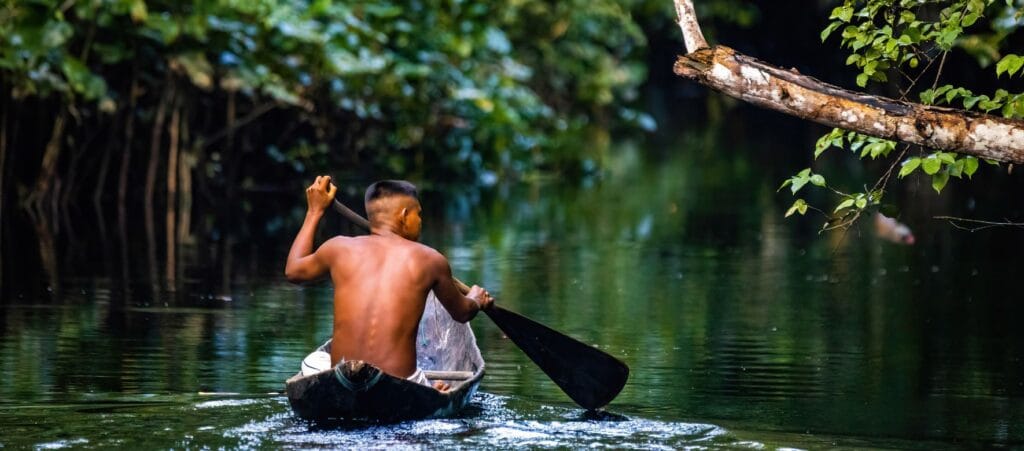
Indigenous territories and communities play a big role in protecting the Amazon’s biodiversity and unlocking the carbon potential of forest trees and soil. Indigenous people not only have the incentives to protect their homes, but they have boundless knowledge of the lands and best practices for conservation efforts. Studies have found that Indigenous lands are effective buffers against deforestation and while other research saw providing Indigenous Peruvians with smartphones and satellite data has helped overall reduction of tree cover loss in the Amazon. But these efforts are under increasing threat as the current Brazilian government is pushing legislation through Congress that will make it harder for new Indigenous lands to be established and potentially allowing the government to repossess existing lands.

EU Looks to Ban Food Imports from Deforested Areas
Aqui está um dos poucos fatos encorajadores sobre o desmatamento da floresta amazônica: a UE está propondo a proibição de seis commodities agrícolas e alimentares ligadas a áreas de desmatamento para ajudar a proteger as florestas mais vulneráveis do mundo, incluindo a Amazônia. Caso a legislação seja aprovada, as empresas europeias serão obrigadas a provar que os produtos que vendem não contribuíram para o desmatamento legal e ilegal ou para a degradação florestal.
Source:earth.org
Biden-Xi Renewed Cooperation on Climate Change Brings Relief to COP27 Negotiators
The leaders of the world’s largest economies and biggest emitters of greenhouse gases met at the G20 summit in Bali, Indonesia. It was the first in-person meeting since President Biden took office last year and the first time they spoke since Speaker Nancy Pelosi’s controversial Taiwan visit earlier this year, which led to the suspension of the cooperation on climate change Beijing and Washington had agreed on at last year’s COP26 summit in Glasgow.
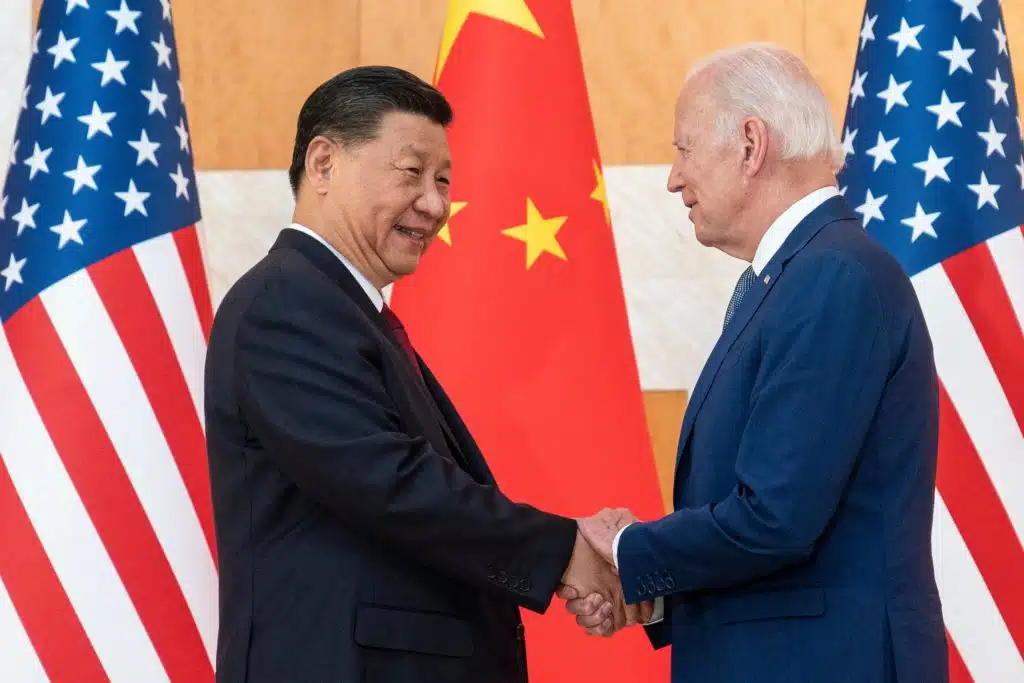
Xi and Biden will “work together to address transnational challenges” – a White House readout of the meeting said. Climate change, global macroeconomic stability, and food security amid the conflict in Ukraine were cited as the most pressing global issues the two discussed.
News of the renewed long-stalled cooperation on climate change between China and the US brought relief to COP27 negotiators in Egypt, who were hoping the G20 meeting could lead to more cash and bold commitments in the fight against global warming. “This unequivocal signal from the two largest economies to work together to address the climate crisis is more than welcome, it’s essential,” said Manish Bapna, president and chief executive officer of the US non-profit Natural Resources Defense Council (NRDC).
“There is no way in which we can address the climate challenge that we face without the co-operation of all G20 members and in particular without the co-operation of the two biggest economies, the United States and China,” UN Secretary-General António Guterres said. “And I am very happy that the countries had a summit today.”
Speaking in Bali on Monday, Guterres urged G20 countries – responsible for 80% of global emissions – to accelerate the transition to clean energy and “provide governments of the Global South with investments and liquidity, and offer debt relief and restructuring.”
“Action – or inaction – by the G20 will determine whether every member of our human family has a chance to live sustainably and peacefully, on a healthy planet,” he added.
Source:earth.org
Brazil's Lula Aims to Reward Farmers With Cheap Credit for Curbing Carbon
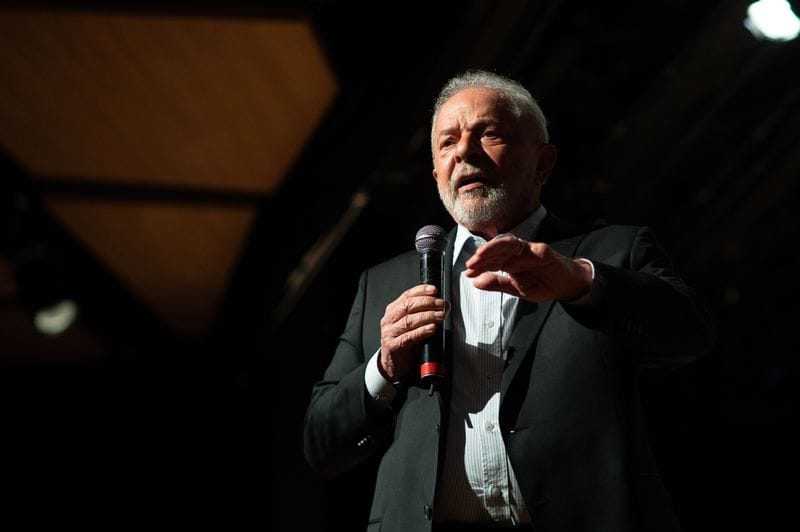
Macron supports Lula's proposal to hold the COP in the Amazon
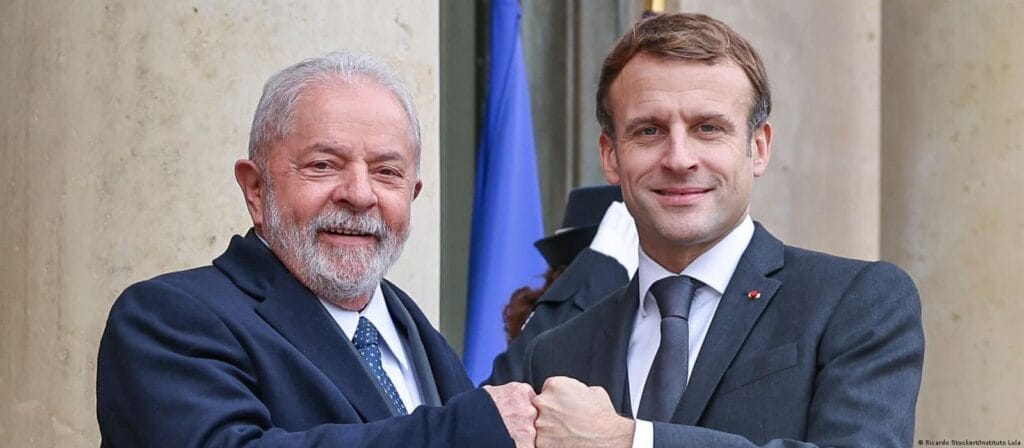
Source:dw.com
Germany proposes climate cooperation with Brazil
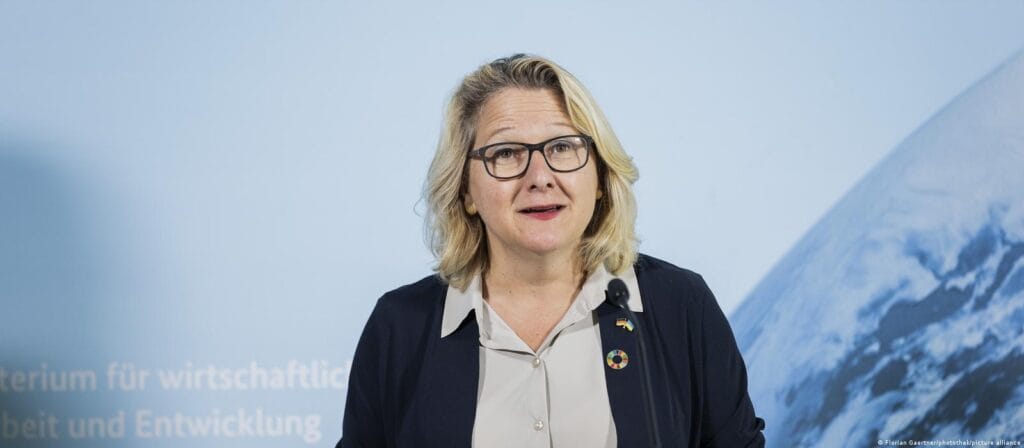
Earth will not wait. Neither do we.




